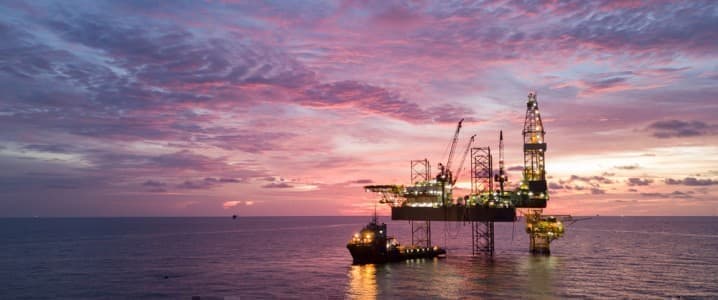The COVID pandemic has wreaked considerable damage on the economies of South America’s smaller fiscally fragile countries, with the former Dutch colony of Suriname hit especially hard.
During 2020 the impoverished South American nation’s gross domestic product shrank by 13.5%, the continent’s worst performance after Venezuela. A deeply impoverished Suriname now finds itself mired in a severe economic crisis that is threatening an already fragile state that only emerged from an intense political impasse during July 2020.
The depth of Suriname’s economic problem is reflected by the former Dutch colony defaulting on scheduled debt service payments for $675 million of sovereign debt during 2020. Since then, Paramaribo has been negotiating with creditors to cure the default. That resulted in international credit agencies Fitch Ratings and S&P Global Ratings downgrading Suriname’s credit rating.
President Chan Santokhi, who won the tiny South American country’s top office in the July 2020 election, is battling to resurrect a flailing economy and cast off the corruption as well as the malfeasance of the Bouterse administration. Like in neighboring Guyana, Santokhi’s government plans to exploit what appears to be Suriname’s considerable offshore petroleum wealth to revitalize the economy, bolster government finances and return the former Dutch colony to growth.
Despite Suriname only possessing oil reserves of 89 million barrels, the tiny South American nation possesses enormous oil potential. The impoverished country shares the Guyana Suriname Basin, which the U.S. Geological Survey estimates contains up to 35.6 billion barrels of undiscovered oil resources. Already, neighboring Guyana is experiencing a massive oil boom that saw its GDP expand by an exceptional 43% during 2020.
Video: Winter Could Send Oil To $100
Exxon’s slew of quality oil discoveries in the Stabroek Block offshore Guyana, with the latest at the Pinktail well, point to even greater petroleum potential. Exxon along with partner Malaysian national oil company Petronas, which is the operator, found the presence of hydrocarbons at the 15,682-foot Sloanea-1 exploration well in offshore Suriname Block 52. The 1.6-million-acre Block 52 and neighboring 1.4-million-acre Block 58 are believed to lie on the same hydrocarbon fairway as the prolific Stabroek Block.
That proposition is supported by the five quality oil discoveries made by Apache and TotalEnergies, the operator, in Block 58 where they both hold a 50% interest.
Investment bank Morgan Stanley in 2020 announced that it had modeled the oil potential for Block 58 and determined that it could contain oil resources of up to 6.5 billion barrels.
Industry consultancy Rystad Energy estimates that the five discoveries made in offshore Suriname up until the end of June 2021 hold recoverable oil resources of up to 1.9 billion barrels of crude oil.
At the June 2021 Suriname Energy, Oil and Gas Summit Apache’s Vice President Global Geoscience and Portfolio Management Eric Vosburgh stated; “What I would say is that the ultimate scale of the resource and production potential is big. I think I need a word bigger than big, but it’s big.” Apache and partner TotalEnergies are committed to developing Block 58. At the start of 2021, Apache announced that most of its annual $200 million exploration budget will be directed toward drilling in Suriname. TotalEnergies set a 2021 exploration budget allocated $800 million with the energy supermajor devoting a third of its exploration appraisal activities to Block 58.
While plans to develop the block have yet to be released TotalEnergies and Apache are expected to make their final investment decision during mid-2022 and work toward first oil by 2025. Suriname’s national oil company and industry regulator Staatsolie has the right to farm into Block 58 and take up to a 20% stake, which would see it liable for $1 billion to $1.5 billion in development costs. Paramaribo is also focused on attracting further energy investment in Suriname recently awarding three shallow-water blocks to foreign energy supermajors. TotalEnergies and partner Qatar Petroleum won Blocks 6 and 8, which are adjacent to Block 58, and Chevron was awarded Block 5. That region is underexplored and thought to possess considerable petroleum potential.
The medium and light crude oil found in Block 58 has similar characteristics to the Liza grade crude oil being pumped from the neighboring Stabroek Block. When that is combined with a low estimated breakeven price of around $40 per barrel Brent it is easy to see why offshore Suriname is especially attractive for international energy companies.
As further petroleum discoveries are made, oilfields developed and infrastructure built the breakeven price for offshore Suriname will fall to under $40 per barrel, making the region competitive with neighboring offshore Guyana and Brazil.
The downgrades to Suriname’s credit rating will make it difficult for Paramaribo to raise urgently needed capital including that required by Staatsolie to exercise its farm in option for Block 58.
Related: Oil Jumps To Six-Week High On Brighter Demand Outlook
International ratings agency Fitch in April 2021 announced it had downgraded Suriname to restricted default (RD) after the government failed to make $49.8 billion of payments on its 2023 and 2026 notes. That event according to the ratings agency was Suriname’s third default since the pandemic began in March 2020.
Those events highlight why Paramaribo must resolve the negotiations with creditors and the potential for a sovereign debt default if it is to build further momentum for the exploitation of Suriname’s vast offshore petroleum resources.
The current economic crisis coupled with the economy shrinking by nearly 14% last year emphasizes why Paramaribo must attract further investment from foreign energy companies so it can experience a massive economic boom like the one underway in neighboring Guyana. It is French oil supermajor TotalEnergies which is positioned to become a leading player in Suriname’s emerging offshore oil boom.
By Matthew Smith for Oilprice.com
More Top Reads From Oilprice.com:
- Is Oil Really Doomed?
- Why Bank Of America Thinks Oil Prices Are Heading To $100
- China’s Futile Attempt To Send Oil Prices Lower


















